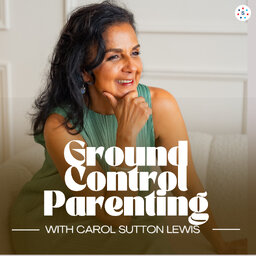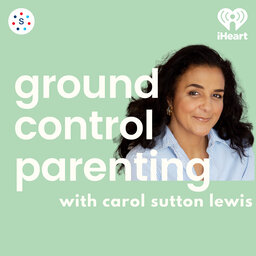Navigating The New Frontier of Drug Use with Dr. Yasmin Hurd
Carol talks with Dr. Yasmin Hurd, Director of the Mount Sinai Addiction Institute, about the complex landscape of drug use today. With marijuana available recreationally or medically in most states and new synthetic drugs regularly hitting the market, parents need to know when and how to discuss drugs and drug use with their children. Dr. Hurd shares her insights on two drugs currently making headlines: cannabis and fentanyl. She walks Carol through the benefits and potential risks of cannabis and talks about why fentanyl use is rising and the toll it is taking on its users. Carol and Dr. Hurd answer listener questions and offer advice on how to create an open and supportive environment where kids can honestly discuss their thoughts and questions about drugs.
Follow us at @GroundControlParenting and on groundcontrolparenting.com
In 1 playlist(s)
Ground Control Parenting with Carol Sutton Lewis
Parenting advice and inspiration for raising smart, confident Black children. Join host and Ground C…Social links
Follow podcast
Recent clips

Season 4 Rewind with Carol Sutton Lewis
21:49

What Teachers Want Parents to Know with Dr. Charlene Reid
58:46

Raising Socially Conscious Kids with Deval Patrick
42:48
 Ground Control Parenting with Carol Sutton Lewis
Ground Control Parenting with Carol Sutton Lewis